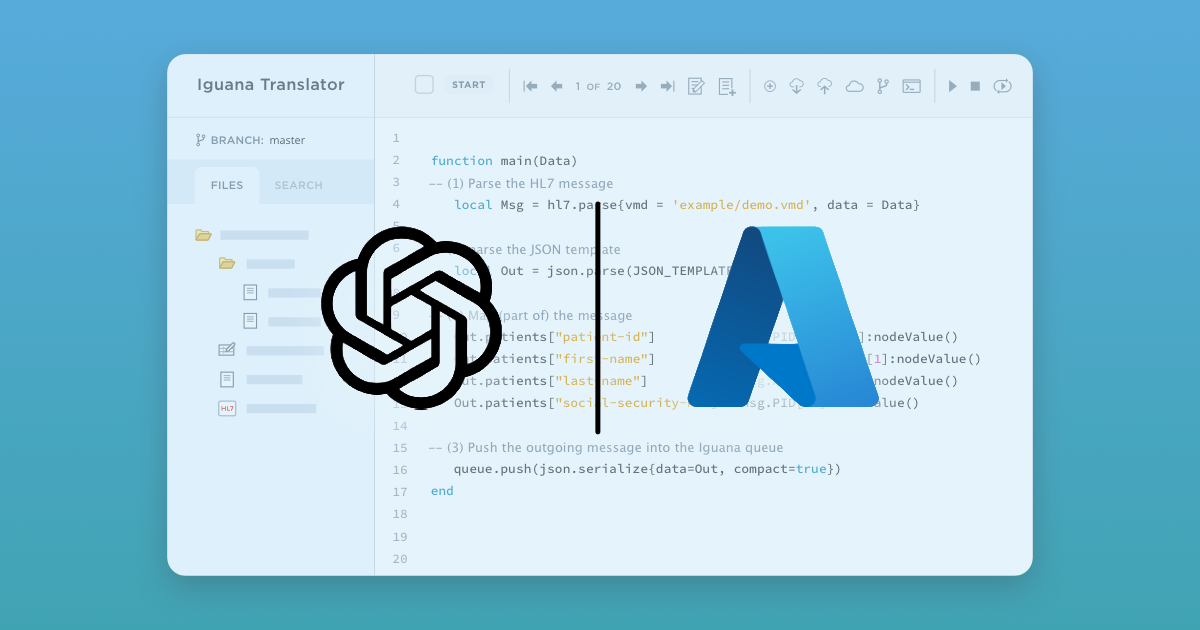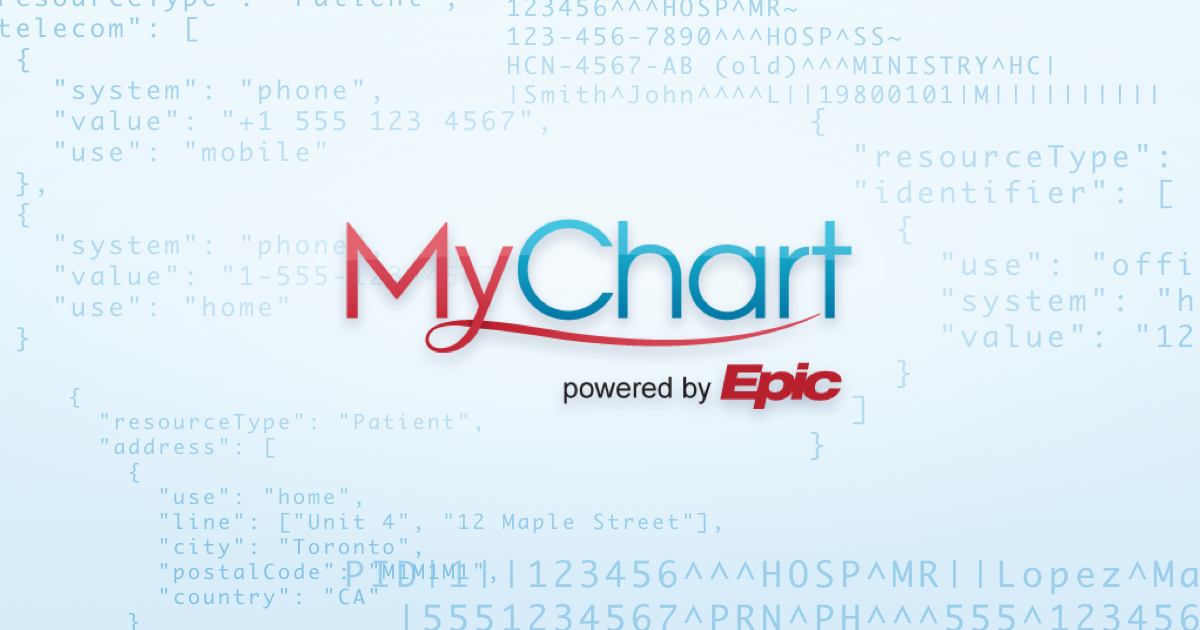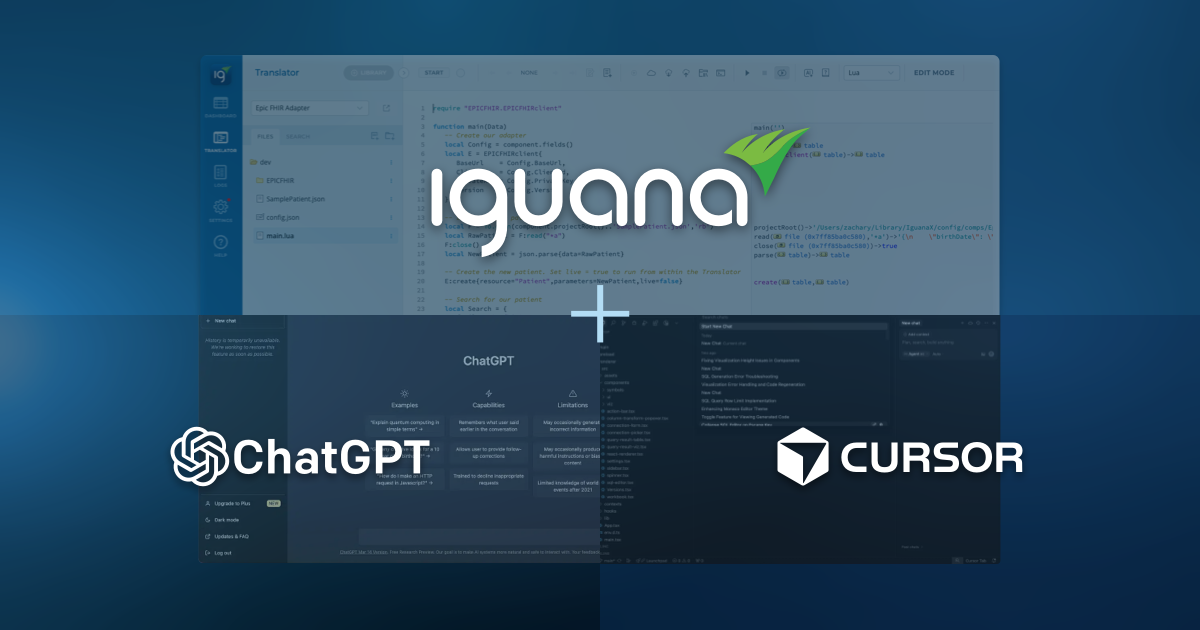"This is like Vercel, but for Hospitals"

Recently during a call, a prospect described Iguana in a way that surprised us. After seeing how integrations are built and debugged, he said that Iguana felt "like Vercel, but for hospitals". It was meant as a compliment, and a meaningful one. After all, Vercel is widely recognized as a leading platform for hosting and deploying modern web applications, known for its speed, clarity, and developer experience.
To understand the comparison, it helps to be clear about what Iguana actually does. Iguana is a complete integration engine that manages the entire lifecycle of healthcare data exchange. It handles connection setup, routing, transformation, delivery, monitoring, and reliability across clinical systems.
The Vercel comparison is not about what each platform does in practice. Rather, it comes from how the development and workflow experience inside Iguana feels, for the engineers who build those integrations.
So what made him draw that comparison?
It turns out the similarities are stronger than you might expect.
Here are the some of the things people love about how Vercel works, and how those same strengths show up inside Iguana, but for healthcare integration.
1. Both let developers focus on the work, not the plumbing
One of the main reasons developers love Vercel is that it takes care of the tedious parts of running applications. No need to think about servers, deployment scripts, infrastructure setup, or DNS. You focus on the frontend. Vercel handles the rest.
Iguana delivers the same value to healthcare integration engineers.
Instead of fighting with transport protocols, handmade message queues, retry logic, file watchers, and custom debugging scripts, engineers can focus on the part of integration that actually matters: the transformation and workflow logic. Iguana handles the infrastructure parts that normally weigh teams down.
This is the core of the comparison. Vercel streamlines the web. Iguana streamlines healthcare data.
2. Both offer a natural Git based workflow
One of Vercels signature traits is how easily code moves from the editor to a live environment. You push a change to your Git repo, and Vercel handles the deployment. It is fast, consistent, and safe.
Iguana brings this same experience to clinical interfaces.
You adjust code in Translator, commit it, and Iguana can run the interface directly from that commit. You can even tell a component to use any previous version of the code. This feels modern, clean, and natural, especially for developers who already rely on Git every day.
In an industry where deployment tools often feel outdated or opaque, this Git native workflow is a breath of fresh air.
3. Both provide clear, powerful debugging tools
Vercel gives developers a clear place to view server logs, build output, and errors. There is no hunting through remote shells or scattered log files. Everything is in one dashboard.
Iguana takes this concept much further because healthcare data demands deeper visibility.
The logs show every incoming and outgoing message, every error, the exact path a message took across components, and the precise moment something failed. The context view makes the entire workflow easy to follow. You can resubmit messages directly from the logs, which saves hours of troubleshooting time.
Where Vercel simplifies debugging a web build, Iguana simplifies debugging clinical data flows that hospitals depend on.
4. Both let you preview changes before activating them
Vercels deploy previews are loved because they make it easy to see exactly how a change will behave before merging it. No surprises. No guesswork.
Iguana offers a similar superpower through the annotation window in Translator.
As you write or edit your Lua code, Iguana shows you the output of each line in real time. You see exactly how messages are parsed, how fields are mapped, and how data transforms. It gives integration engineers instant confidence and eliminates the old cycle of making a change, deploying, testing, and rolling back.
This is one of Iguanas most praised features, and it correlates to the same feeling that Vercel delivers.
5. Both speed up development with framework like building blocks
Vercel is the creator of Next.js, one of the most popular frontend frameworks in the world, which provides helpful patterns and tools without having to write a ton of custom code.
Iguana takes the same concept and adapts it to healthcare integration:
-
A large set of built in APIs
-
Helper functions for HL7, XML, JSON, HTTP, SQL, and cryptography
-
Prebuilt Components for common workflows
-
Healthcare specific adapters and templates
-
A shell adapter for creating reusable modules
Instead of reinventing parsing, ACK generation, HTTP requests, or file handling, engineers grab tools that are already waiting for them.
This is exactly what a framework does. It gives developers a head start.
In short, Iguana brings the best of modern development to healthcare integration
Vercel is known for raising the bar on what developers expect from their tools. When someone sees Iguana and instinctively compares it to one of the most respected platforms in modern software, it speaks to a deeper point. Healthcare teams deserve tools that feel modern, clear, and enjoyable to work with.
If Vercel represents the best of the web development world, then Iguana aims to bring that same level of quality to healthcare integration.
In other words: like Vercel, but for hospitals.


